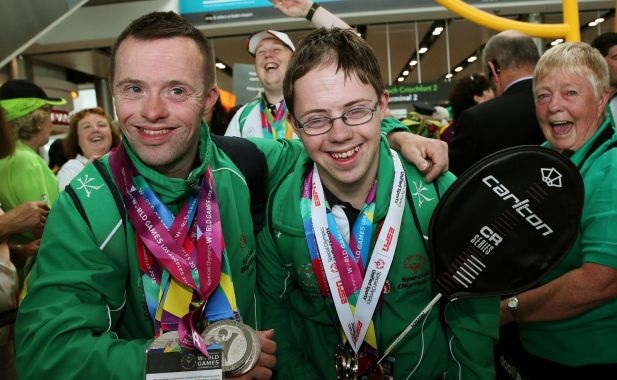Ireland’s culture of protecting and encouraging every human being received another boost this week with the annual collection in favour of the Special Olympics.
This event, which is widely advertised and keenly anticipated, is a reminder of the excellent culture of equality and inclusion that Ireland’s Eighth Amendment has helped to foster. The Special Olympics holds a very special place in the heart of men and women in Ireland. The organisation in charge of running the event has become of the largest and most successful voluntary organisations in the country, with over 9000 athletes and an incredible network of 25000 volunteers who help on the day itself and in many different ways both before and afterwards.
It’s easy to discount the effect that the Eighth Amendment has had on this kind of work. The reality however, is that people with special needs are given particular encouragement in Ireland, and that encouragement starts at the very beginning. It starts in the womb.
Children in Ireland are protected by the law regardless of their ability or disability, whether sick or healthy, rich or poor. It’s only with this kind of protection from the beginning that the parents of children who have special needs can make the best start on a journey to find out how they can foster their children’s different talents.
Click here to sign up for pro-life news alerts from LifeNews.com
It’s an outlook that is vitally important, and while the support structures in Ireland can certainly do with improving, the Eighth Amendment has meant that children with special needs fare much better in Ireland than they do elsewhere.
We only have to look at the travesty of the UK to see how the introduction of abortion has attacked the dignity of these vulnerable children. There, 90% of children diagnosed with Down Syndrome in the womb are aborted. Abortion is available right up to birth if the unborn baby is diagnosed with any disability whatsoever, and abortion advocates allow this shameless discrimination to continue.
Further afield, Denmark has set itself a goal of being “Down Syndrome free” by 2030. Iceland has already achieved this very dubious honour. It is very difficult for people living with Down Syndrome in those countries to feel that they are valued by their own country. In the words of Heidi Crowter, a young woman who has Down Syndrome and who campaigns against the introduction of better screening tests that have the aim of highlighting babies with Down Syndrome, “What is so offensive about Down Syndrome and have you considered how this testing is making me feel?”
The problem with many abortion advocates, both in Ireland and elsewhere, is that they don’t take into account the feelings of people like Heidi – people who are expected to stand idly by and watch while the laws that protect children who share their condition are stripped away. This is not compassion. This is not the kind of social solidarity that we should be striving for.
As Ireland’s last remaining constitutional protection for unborn children comes under increasing attack, it is more important than ever that those of us who believe in fostering everyone’s ability work to ensure that this law is not removed but that it, and the culture it maintains, remains in place for the benefit of future generations.








